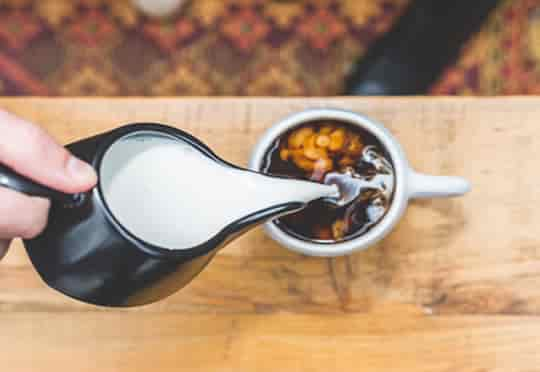This diet is the most effective regimen for reducing “bad” cholesterol, a review of 49 studies confirms.
A plant-based diet — particularly a vegan diet — can substantially lower total cholesterol, including low-density lipoprotein (LDL) or “bad” cholesterol in four weeks.
A review of 49 studies found that plant-based diets including vegan and vegetarian diets reduced total cholesterol levels up to 29.2 milligrams per deciliter (mg/dl).
The reduction of LDL cholesterol levels was up to 22.9 mg/dL and for HDL cholesterol up to 3.6 mg/dL when compared to other diets such as a low-fat omnivorous diet.
The strong effect of plant-based diets on lowering cholesterol levels is probably related to weight loss and body fat and because these types of foods are low in saturated fat and calories.
Also plant-based diets contain legumes, vegetables, whole grains, fruits, seeds, and nuts which are high in fibre and plant sterols.
Ms Susan Levin, study co-author, said:
“The immediate health benefits of a plant-based diet, like weight loss, lower blood pressure, and improved cholesterol, are well documented in controlled studies.
Our goal with studying plasma lipids throughout the lifespan is to capture the net risk reduction of using a vegetarian diet to control lipid levels.
We hope to empower patients with new research about the long-term cardiovascular health benefits of a vegetarian diet, which include a reduced risk of a heart attack, stroke, and premature death.”
Dr Charles Ross, a physician, managed to lower his cholesterol from 230 mg/dL to a healthy 135 mg/dL without taking any medication and only by going on a plant-based diet.
He lost 10 pounds (4.5 kg) within a month of adopting this diet.
He said:
“I wake up every day eager to hear about how a plant-based diet and a healthful lifestyle is changing and saving lives in our community.
What I’ve found is that if you want your patients to make significant health changes, you have to make them yourself.
The prescription started to spread soon after my family, co-workers, neighbors, and friends heard about my experience.”
High blood cholesterol levels and triglycerides can lead to hyperlipidemia which often is not diagnosed and so left untreated.
If only 10 percent of patients with hyperlipidemia are treated this could save 8,000 lives every year.
Making lifestyle and dietary changes even in small steps could avert 10,000 cases of heart disease in the US, 20,000 heart attacks, and three billion dollars of medical expenses every year.
Ms Levin said:
“To make any form of health care work and to truly power economic mobility, we have to get healthy.
The first place to start is by building meals around nutrient-packed, plant-based foods, which fit into nearly every cultural template, taste preference, and budget.”
The study was published in Nutrition Reviews (Yokoyama et al., 2017).









